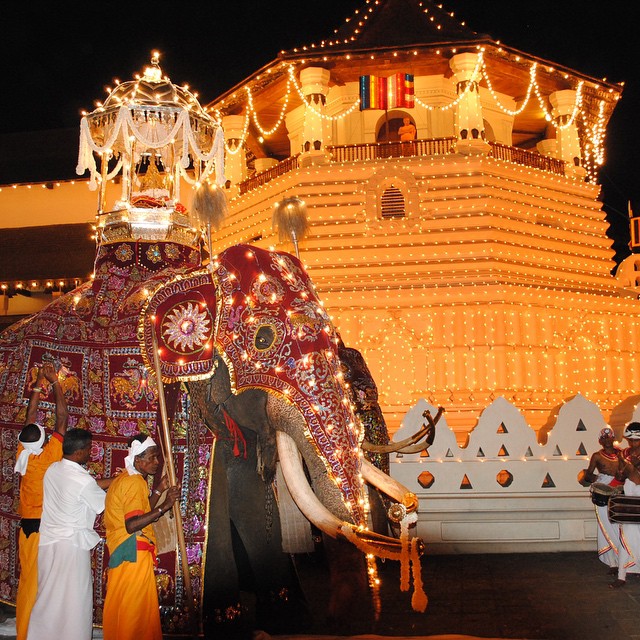Important festivals that you must not miss during your visit to Sri Lanka this year

If you look up Sri Lanka in the world map, you’d never think that such a small island in the Indian ocean can be one of multi ethnicities, religions and languages. In fact, not many people know that the island’s locals celebrate each ethnicity’s and each religion’s important dates equally; making it look and feel like they’re partying and celebrating all year long! If you’re planning a trip to Sri Lanka any time soon, knowing what the important festivals are, and when they will be celebrated will make it easier to plan your dates around them. The below is a small selection of not all, but major festivals that you should not miss during your visit to Sri Lanka this year.
Independence Day
Due to its rather important location on the silk route, Sri Lanka has faced and fought many invaders in the past. Some battles were won, and those that the locals lost left a lasting impression on the island’s culture and architecture. The history of Sri Lanka intertwines beautifully with those of its surrounding countries, and many a time, the invaders who conquer the countries around the island attempt to conquer this little island in the Indian ocean as well. After much struggles, Sri Lanka attained its independence from its last invaders on the 4th of February 1948. This day is celebrated grandly each year with parades and dancing, and should not be missed if you’re in the island during this period.
Navam Perahera
The Gangaramaya temple is a 120 years old temple within the Colombo city limits. This temple is a must visit on any other day due to its historical, religious and cultural importance. However, if you’re in Sri Lanka around the Navam Poya (full moon), which usually falls in February, you should not miss catching a glimpse of the Navam Maha Perahera on that day. This second full moon of the year is considered to have great importance to those following Buddhism, and to commemorate it, the locals celebrate a colorful festival over the period of 2 days. The Gangaramaya temple is within a short walking distance from The Steuart city hotel in Colombo.
Sinhala and Tamil new year
Like we’ve mentioned above, Sri Lanka is a country of multi languages, religions and ethnicities. And though peace is something that the locals actively strive to hold, there are a few minor altercations that highlight their differences. However, when it comes to common festivals like the Sinhala and Tamil new year, the locals lay aside all differences and celebrate the day in harmony and grandeur. This celebration happens annually on the 13th and 14th of April; marking the end of harvest season. The locals polish up their homes, wear clothes in auspicious colors and generally spend time reconnecting with friends and family. Like most celebrations of the island, these days are also celebrated with color and noise; something hard to miss if you’re in the island during this period of the year.
Vesak Poya
The Vesak poya, the full moon falling on the month of May, is once more religiously important to Buddhism. It is believed that in a day similar to this, the lord Buddha was born, and also received enlightenment. Due to this reason, Buddhists all around the country light up lamps and decorative lanterns to celebrate the day. This festival is celebrated over the course of two days, where you will be able to see friendly lantern decorating competitions and free roadside food stalls all around the country. This is considered to be one of the prettiest festivals of the island, and something you definitely should not miss out on if you’re hoping to plan a visit to Sri Lanka around this period.
Kandy Esala Perahera
Apart from the beaches, and the humble and welcoming locals, Sri Lanka is also famous for its colorful and loud festivals; The Esala Perahera being the most famous among them. Conducted every year in the historical hill city Kandy, this is an event you should not miss if you’re in Sri Lanka around months of June and July. Remember that this is a celebration, and the festival draws hundreds of tourists every year. It’s always better to pre order your seats and make other prior arrangements (like booking your transport and hotel for the stay) ahead of time to avoid disappointment.
When you visit Sri Lanka, do not be afraid to join in on the celebrations; the locals would love having you join in! However, if you plan on visiting any of the religious sites, don’t forget to pack appropriate clothing and be respectful.